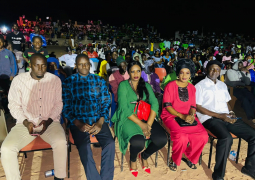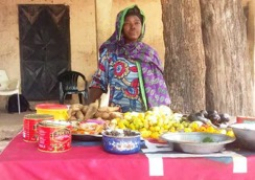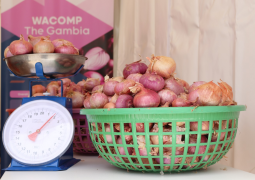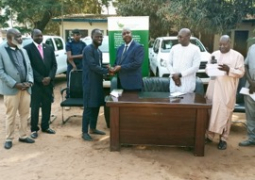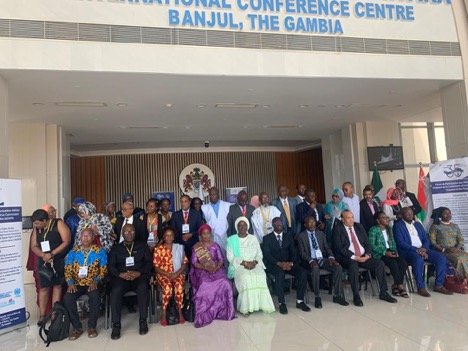
The event preceded by the NGO Forum was held at Sir Dawda Kairaba Jawara Conference Centre on the theme; -‘The Year of Education: Educate an African fit for the 21st Century.
The session was geared towards building a resilient education system for increased access to inclusive, lifelong, quality and relevant learning in The Gambia and Africa at large.
The main aim of the NGO Forum was to foster closer collaboration among NGOs and with other human rights bodies, especially the African Commission on Human and Peoples’ Rights for the purpose of promoting and protecting human rights in Africa and consolidating their various contributions to the process.
In addition, the 79th Ordinary Session witnessed eleven panels and various special interest group discussions all aimed at improving the status of human rights and governance in their respective countries.
Also, the session availed committee members, participants and partners the opportunity to review the situation of democracy and human rights on the continent and raise alarms on trouble spots for action.
Addressing the gathering, Hannah Foster, Executive Director of ACDHRS, reminded that the main duty bearer for the promotion and protection of human rights are states, as the promotion and protection of human rights remains a collective responsibility, which must be promoted and protected by ‘everybody, everywhere, every time and every day.’
She observed that the Civil Society Organisation has indeed not rested on its oars and has continued to play its role in the realisation of human rights and fundamental freedoms to complement the efforts of government and other partners.
Foster explained that together the state and Non-State Actors can achieve a great deal more when they collaborate and support each other in this noble process.
Justice Assiatou Jallow Sey, representing the Chief Justice of The Gambia, described education as the cornerstone of development, democracy and human rights.
“It is not merely a path to personal advancement but a fundamental right and a collective responsibility; quality education empowers individuals, fosters equality, and drives inclusive growth. Yet the challenges in our education systems are stark. Millions of children remain out of school, denied the transformative power of knowledge and opportunity.” she noted.
While underscoring the role of NGOs in advancing the theme, Jallow-Sey equally called on Governments and Civil Society Organisations to break barriers, dismantle inequalities that hinder our progress, embrace the transformative power of education and equip youth with the tools they need to navigate an ever-evolving world break.
Janet Ramatoulie Sallah-Njie, Vice Chairperson of the African Commission on Human and Peoples’ Rights, outlined the pivotal role of education in addressing challenges like poverty and human rights violations.
She called for investment in rural schools, grants for vulnerable groups, and ensuring educational access for all, including girls, children with disabilities, and indigenous communities.
Also speaking, Robert Athewa, representing the Network of African Human Rights Institutions, called for collaboration between National Human rights institutions and the Government in order to tackle educational challenges in rural areas and Africa at large.
Other highlights of the agenda included panel on Gender-Based Violence and other harmful traditional practices with a focus on Female Genital Mutilation; Overcoming barriers to Education Access in Rural Africa; Civic engagement and Freedom of Assembly, Promoting democratic participation in Africa and protection of Human Rights Defenders, among a host of others.


